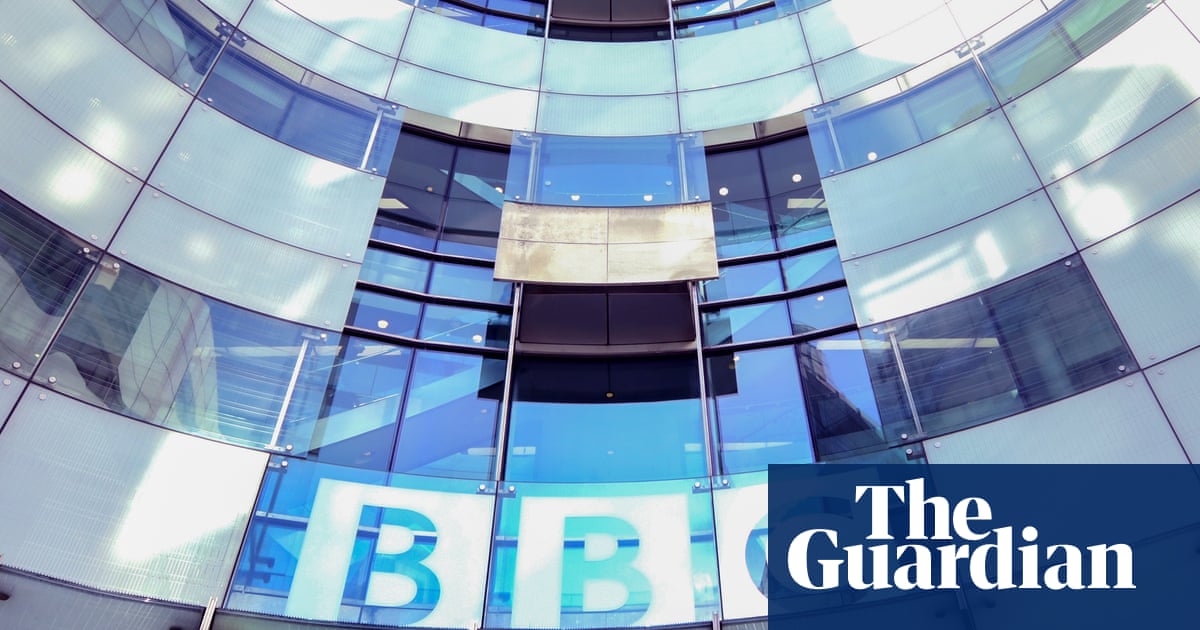The BBC must be given complete political independence in case Nigel Farage enters government, its former director of news has said.
James Harding, now the editor-in-chief of the Observer, pointed to Donald Trump’s attempts to defund publicly backed US media and said it would be “recklessly complacent” to believe something similar could not happen in Britain.
He said the BBC’s survival was at stake and noted that Reform’s last manifesto had claimed the “out-of-touch wasteful BBC is institutionally biased. The TV licence is taxation without representation. We will scrap it.”
Harding said: “In other words, the one-time reality TV star who leads Reform has some bracing reality in store for TV. It’s recklessly complacent to ignore it. What’s happened in the US is, as likely as not, going to happen here. We have to address this now.”
His comments come with Reform consistently leading in the polls and fears within Labour and the Conservatives about its rise.
Harding called for a complete overhaul of the BBC’s political and financial independence, including the end of a regime under which the corporation enters negotiations over the renewal of its charter every 10 years.
“It’s extraordinary, when you think about it, that if parliament chooses not to renew the royal charter in 2027, the BBC will cease to exist,” he said. “The BBC, which politicians can’t help but keep on a leash, is, in effect, on a 10-year rolling contract.
“Political interference – and the perception of a political presence looming over the BBC – is a problem, one that we’ve got too accustomed to. And it looks likely to get worse. We need to get on with putting the country’s most important editorial and creative organisation beyond the reach of politicians now.”
Harding issued his plea as he delivered the annual MacTaggart lecture at the Edinburgh television festival. He said the prime minister should be stripped of the power to pick the corporation’s chair and board. Instead, he said, it should operate like other corporations, in which the board selects the chair, with the approval of the communications watchdog, Ofcom.
He also called for the BBC’s charter to be open-ended, like that of the Bank of England, with the licence fee or any future funding arrangement not decided “behind closed doors” by the culture secretary and the chancellor, but by an independent commission that advises the government and is scrutinised by parliament.
“BBC independence means giving it the resources it needs, not freezing its funding yet again, but doubling down,” he said.
“Over five years, nearly 2.5 million households have dropped out of paying the licence fee, so this needs fixing. It’s expensive and unfair on those who pay. If we believe in the universality of the BBC, we need to return to the principle in some form or other that every household pays.”
skip past newsletter promotion
Our morning email breaks down the key stories of the day, telling you what’s happening and why it matters
Privacy Notice: Newsletters may contain info about charities, online ads, and content funded by outside parties. For more information see our Privacy Policy. We use Google reCaptcha to protect our website and the Google Privacy Policy and Terms of Service apply.
after newsletter promotion
The former Times editor also said the BBC should “lead the way in striking deals with generative AI companies on meaningful pricing of its reliable, ceaselessly renewed library of content”.
Harding, who is Jewish, said he did not believe the BBC was “institutionally antisemitic”, as some have claimed after a series of rows over its handling of Gaza coverage.
He criticised the culture secretary, Lisa Nandy, for her repeated attacks on the BBC director general, Tim Davie, after the BBC’s admission that a Gaza documentary breached accuracy guidelines and its livestreaming of Bob Vylan’s Glastonbury set, which included chants of “death to the IDF”, referring to the Israel Defense Forces.
“Whatever your view of the hate speech v freedom of speech issues, an overbearing government minister doesn’t help anyone,” Harding said. “The hiring and firing of the editor-in-chief of the country’s leading newsroom and cultural organisation should not be the job of a politician. It’s chilling.”
